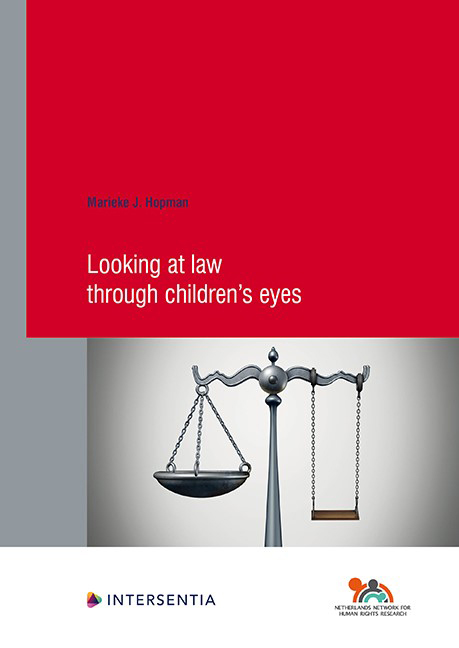Chapter 2 - Law for Children, an Adult Perspective
Published online by Cambridge University Press: 25 May 2021
Summary
When discussing laws concerning children, we usually (if not always) depart from an adult’s perspective. This is not very surprising, since academic researchers are usually (if not always) adults. It is not very recent either; even Plato wrote about the child as a becoming-adult, who needs to be educated, because its soul is still incomplete (lacking the element of reason). Laws in this sense are supposed to be instrumental to both the child in the process of becoming an adult and to society for its protection against the irrational acts of children. To understand laws that potentially violate a child’s right, the chapter will start by studying the relationship between children and the law from the adult’s perspective. In the next chapter, the perspective will be changed around, whereby the relationship between children and the law will be examined from a child’s perspective.
This chapter will start with a general reflection on the distinction between the adult and the child (§2.1) and it will continue with a comparison of the child and the madman in relation to society (§2.2). It will end with a discussion of what this means for the relationship between law and children, and specifically for children’s rights.
THE CHILD/ADULT DISTINCTION
In children’s rights research, as well as in society in general, a categorical distinction is made between the child and the adult. We (both adults and children) understand the child as necessarily distinct from the adult. Whether this is a universal fact has been debated in academic literature; both the historical and the cross-cultural104 existence of the child have been discussed at length. As this is not the place to enter into this discussion, I want to simply point out that, across all times and places, it is impossible not to notice the difference between a new born baby and a full-grown man. As argued by Rutter and Rutter: “no amount of training will cause, say, a four-month-old to walk or talk, or a six-year-old to learn differential calculus”. Anthropologists Levine & New conclude that: “every human society studied recognizes a distinction between children and adults and the age-linked emergence of children’s abilities to learn, work and participate in community activities as they grow and develop”.
- Type
- Chapter
- Information
- Looking at Law through Children's Eyes , pp. 35 - 54Publisher: IntersentiaPrint publication year: 2021

